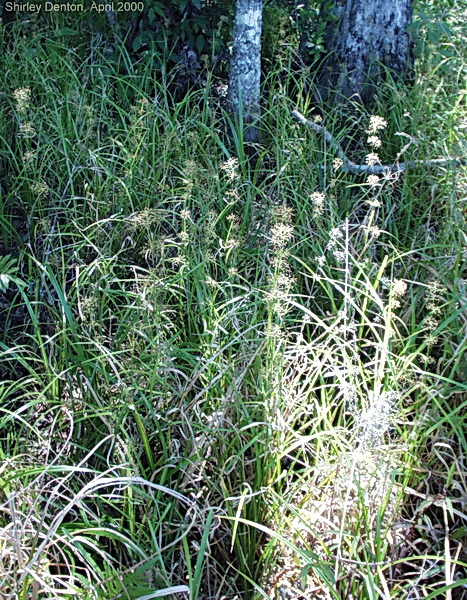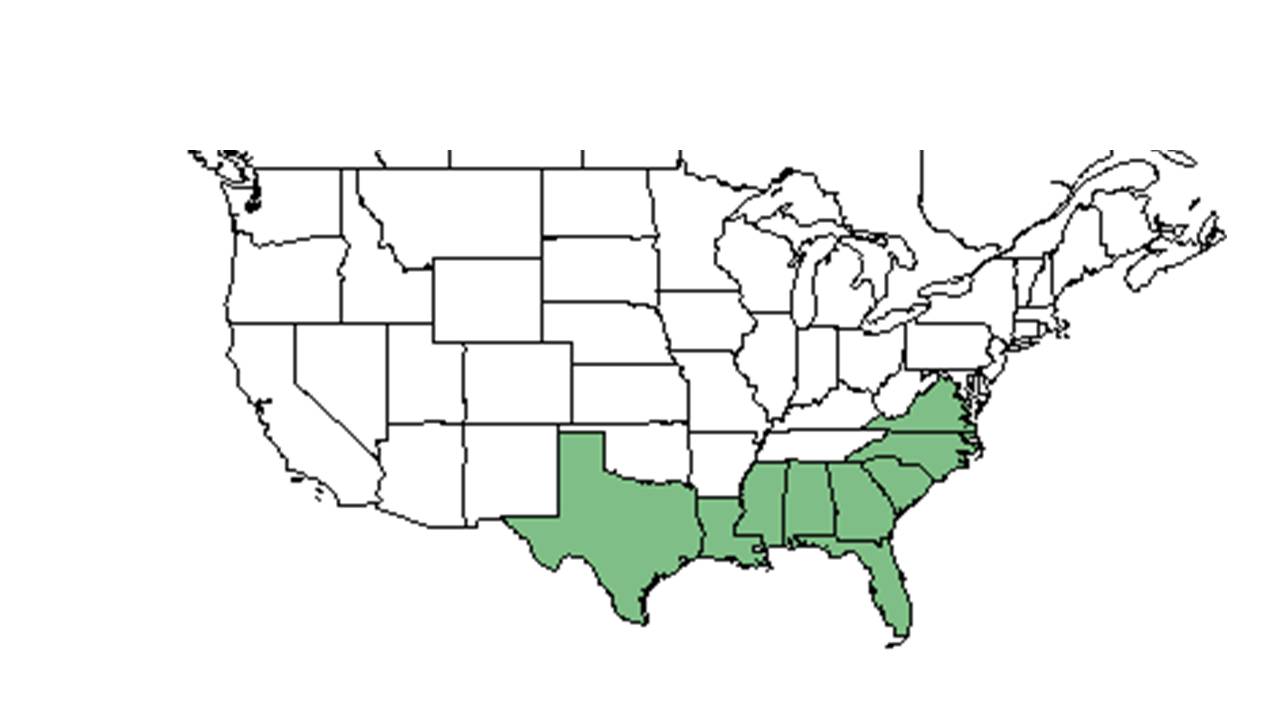Difference between revisions of "Rhynchospora miliacea"
KatieMccoy (talk | contribs) |
|||
| Line 3: | Line 3: | ||
{{taxobox | {{taxobox | ||
| name = Rhynchospora miliacea | | name = Rhynchospora miliacea | ||
| − | | image = | + | | image = Rhyn_mili.jpg |
| − | | image_caption = | + | | image_caption = Photo by Shirley Denton (Copyrighted, use by photographer’s permission only), [http://www.shirleydenton.com/welcome Nature Photography by Shirley Denton] |
| regnum = Plantae | | regnum = Plantae | ||
| divisio = Magnoliophyta – Flowering plants | | divisio = Magnoliophyta – Flowering plants | ||
Revision as of 16:28, 2 February 2016
| Rhynchospora miliacea | |
|---|---|

| |
| Photo by Shirley Denton (Copyrighted, use by photographer’s permission only), Nature Photography by Shirley Denton | |
| Scientific classification | |
| Kingdom: | Plantae |
| Division: | Magnoliophyta – Flowering plants |
| Class: | Liliopsida – Monocotyledons |
| Order: | Cyperales |
| Family: | Cyperaceae |
| Genus: | Rhynchospora |
| Species: | R. miliacea |
| Binomial name | |
| Rhynchospora miliacea (Lam.) A. Gray | |

| |
| Natural range of Rhynchospora miliacea from USDA NRCS Plants Database. | |
Common name: millet beaksedge
Contents
Taxonomic notes
Description
A description of Rhynchospora miliacea is provided in The Flora of North America.
Distribution
Ecology
Habitat
In the Coastal Plain in Florida and Georgia, R. miliacea can occur in wet floodplain forests, cypress swamps, wet loamy soil at hardwood edges, and coastal hammocks (FSU Herbarium). Soils include moist loamy soil and moist sandy peat (FSU Herbarium). It has been observed growing in shaded and semi-shaded areas (FSU Herbarium). Associated species include Dryopteris ludoviciana, Woodwardia areolata, Vernonia missurica, Cypress, Carex, Sparganium, Typha, Smilax tamnoides, Mitreola petiolata, Nyssa, Acer, Acer rubrum, Fraxinus, Taxodium, Taxodium distichum, Rhynchospora caduca, Magnolia virginiana, Planera aquatica, Fraxinus pennsylvanica, Cornus foemina, Persea palustris, Sabal minor, Berchemia scandens (FSU Herbarium).
Phenology
Flowering has been observed in June and fruiting May through October (FSU Herbarium).
Seed dispersal
Seed bank and germination
Fire ecology
Pollination
Use by animals
Diseases and parasites
Conservation and Management
Cultivation and restoration
Photo Gallery
References and notes
Florida State University Robert K. Godfrey Herbarium database. URL: http://herbarium.bio.fsu.edu. Last accessed: July 2015. Collectors: James R. Burkhalter, Loran C. Anderson, Brenda Herring, Don Herring, Angus Gholson, R.K. Godfrey, Dana Bryan, D. B. Ward, D. Burch, P. L. Redfearn, Jr., Sandy Thompson, Cecil R Slaughter, Annie Schmidt, Richard Carter, W. W. Baker. States and Counties: Florida: Dixie, Escambia, Flagler, Franklin, Jackson, Jefferson, Liberty, Marion, Martin, Monroe, Osceola, Sumter, Suwannee, Wakulla. Georgia: Grady, Miller. Compiled by Tall Timbers Research Station and Land Conservancy.